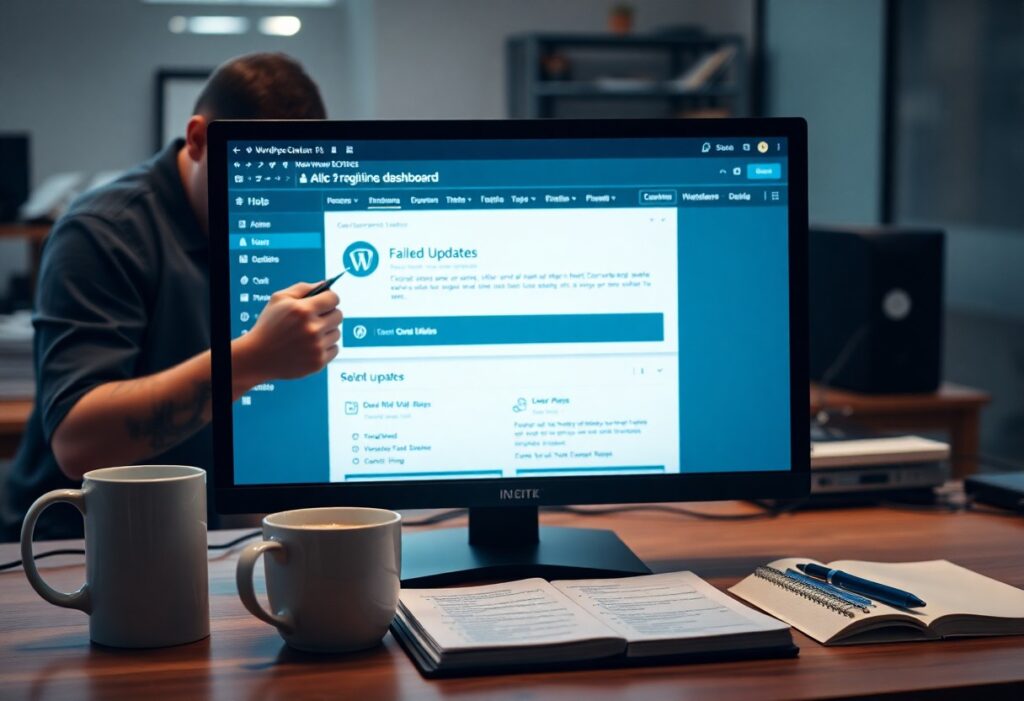WordPress offers robust capabilities for e-commerce through WooCommerce, making it a popular choice for online stores. You can indeed host WooCommerce stores on standard WordPress hosting plans, but not all hosting options are created equal. Choosing a plan that provides sufficient resources and site optimization is important to ensure your store runs smoothly. In this post, you will learn about the key factors to consider when selecting a hosting plan for your WooCommerce store.
Understanding WooCommerce and WordPress Hosting
Setting up an online store requires an understanding of how WooCommerce integrates with WordPress hosting solutions. WooCommerce serves as the e-commerce plugin for WordPress, enabling you to transform your site into a fully-functioning online store with ease. Choosing the right hosting plan directly impacts your store’s performance, speed, and scalability, ensuring a seamless shopping experience for your customers.
What is WooCommerce?
WooCommerce is an open-source e-commerce plugin designed specifically for WordPress. It equips you with various features such as customizable product pages, secure payment gateways, and inventory management. This flexibility allows you to create a unique shopping experience while providing crucial e-commerce functionalities, empowering you to manage your online store effectively.
Overview of WordPress Hosting Plans
WordPress hosting plans are tailored specifically to support WordPress websites, including WooCommerce stores. These plans typically offer specialized features such as one-click installations, automatic updates, and enhanced security measures. Selecting a plan that supports WooCommerce is vital for ensuring optimal site speed and reliability, which are critical for maintaining customer satisfaction and driving sales.
Most hosting providers offer a variety of WordPress hosting plans ranging from shared hosting to dedicated servers, with varying levels of resources and support. Shared hosting is often cost-effective for small stores, while VPS or managed WordPress hosting provides the scalability and performance needed as your store grows. Fast load times are not only beneficial to user experience but also positively impact your search engine rankings, making the choice of a hosting plan a key factor in your store’s success.
How to Determine Compatibility
Evaluating compatibility between your WooCommerce store and WordPress hosting plans involves assessing both the server specifications and the features offered by the hosting provider. Look for hosts that are well-versed in WordPress support and provide optimal resources tailored for e-commerce. Verifying that your chosen host can efficiently manage the increased load of transactions, dynamic content, and potential traffic spikes is necessary for a seamless shopping experience.
Key Features to Look For
Focus on the following key features to ensure your hosting plan meets the needs of your WooCommerce store:
- Scalability to accommodate growth and traffic spikes
- SSL Certificates for secure transactions
- CDN Support for faster content delivery
- Regular Backups to safeguard your store data
- Customer Support with WooCommerce expertise
- Performance Optimization tools for speed
Thou shalt select a hosting provider that meets these specifications to ensure smooth operation and a positive customer experience.
Hosting Plan Specifications
Assessing hosting plan specifications requires analyzing resource allocation, including bandwidth, storage, and processing power. Look for a minimum of 1GB of RAM and adequate CPU resources to handle WooCommerce operations effectively. Ensure the plan includes features like automatic updates, a staging environment, and compatibility with various payment gateways. Evaluating these specifications helps you pick a robust hosting solution capable of supporting an efficient e-commerce platform.
Tips for Choosing the Right Hosting Provider
Selecting the ideal hosting provider for your WooCommerce store involves careful consideration, ensuring performance, reliability, and customer support meet your specific needs. Key factors to keep in mind include:
- Performance: Fast loading times are crucial.
- Reliability: Look for robust uptime guarantees.
- Customer Support: 24/7 assistance is vital for quick issue resolution.
- Scalability: Choose options that accommodate growth easily.
- Security: Evaluate built-in features to protect your site.
Any decision made here can significantly impact your store’s success.
Performance and Reliability
Reliable performance is fundamental for your WooCommerce store, as slow load times can lead to cart abandonment and loss of sales. Find a hosting provider that promises a minimum of 99.9% uptime, as this ensures your site remains accessible to customers. Additionally, consider those that utilize solid-state drives (SSDs) for faster data access and are optimized for WordPress and WooCommerce to achieve top-notch performance.
Customer Support and Resources
Your hosting provider should offer comprehensive customer support to resolve issues swiftly, especially during peak business hours. Choose a provider that supplies extensive resources, such as detailed documentation, tutorials, and community forums, which can enhance your understanding of WooCommerce and improve your ability to manage your store effectively.
Having access to knowledgeable and responsive customer support can save you valuable time and prevent potential revenue losses. Solutions like live chat, email support, or phone assistance can be invaluable, especially when you face technical difficulties that may disrupt business operations. A supportive community and rich resources amplify your ability to troubleshoot problems independently, ensuring your store remains competitive.
How to Configure Your WordPress Hosting for WooCommerce
Setting up your WordPress hosting for WooCommerce involves several steps to ensure optimal performance and security. Start by enabling SSL for your site, which secures transactions and boosts customer trust. Next, configure your PHP settings to meet at least 8.0 or higher for improved speed and security. Utilize caching solutions specific to WordPress, and optimize your database regularly. Implement a reliable backup solution to keep your data safe, and monitor your site’s performance through analytics tools to identify areas for enhancement.
Installing WooCommerce on WordPress
To install WooCommerce on your WordPress site, navigate to the admin dashboard and select Plugins > Add New. Search for “WooCommerce” and click Install Now, followed by Activate. Follow the on-screen setup wizard, entering details like currency, payment methods, and shipping options to tailor your store to your needs. With WooCommerce live, your online store is ready to customize further.
Essential Plugins for a Smooth Setup
Enhancing your WooCommerce store with relevant plugins streamlines functionality and improves the user experience. Some vital plugins to consider include WooCommerce Subscriptions for recurring payments, Yoast SEO to optimize your product pages for search engines, and WooCommerce Stripe Payment Gateway for secure payment processing. These plugins elevate the capabilities of your store, contributing significantly to its success.
Using these vital plugins can dramatically enhance your store’s performance and user satisfaction. For instance, using Yoast SEO not only helps in improving your search engine rankings but also guides you in structuring product descriptions effectively. Incorporating WooCommerce Subscriptions allows you to capture recurring revenue easily, a major boon for niche markets or services. Moreover, plugins for inventory management and analytics support your decision-making process, enabling you to focus on driving sales while maintaining a smooth operational flow.
Factors Affecting WooCommerce Store Performance
Your WooCommerce store’s performance is influenced by several key aspects that can make or break your online business. Factors such as server resources, managing traffic spikes, theme optimization, and the use of add-ons play significant roles. Key considerations include:
- Server Resources
- Themes
- Add-ons
Perceiving these elements will help you enhance the speed and efficiency of your store.
Server Resources and Scalability
The amount of server resources allocated to your WooCommerce store directly influences its performance. Limited resources can lead to slow load times and eventual downtime, especially during high-traffic periods. Opt for hosting plans that offer scalability, enabling you to adjust resources according to traffic demands. This flexibility ensures that your store remains responsive during peak times, ultimately enhancing user experience and sales.
Impact of Themes and Add-ons
The choice of themes and add-ons affects both aesthetics and functionality of your WooCommerce store. Lightweight, well-coded themes can significantly improve loading times, while bulky themes can slow down your site. Similarly, selective use of add-ons enhances features but excessive or poorly coded plugins can degrade performance. Prioritize quality over quantity, investing in carefully chosen themes and reliable add-ons to maintain optimal site efficiency.
Selecting the right theme can enhance your store’s performance by reducing load times; for instance, using a minimalist design that prioritizes speed over flashy graphics can boost user engagement. On the other hand, you might consider limit your add-ons to imperative features only, as every additional plugin introduces potential vulnerabilities and performance bottlenecks. Analyze the necessity of each element, ensuring they contribute positively to your store rather than hinder performance.
Best Practices for Managing Your WooCommerce Store
Effective management of your WooCommerce store enhances performance and customer satisfaction. Implementing best practices can streamline operations, improve efficiency, and boost sales. Your attention to detail in areas like inventory management, customer service, and marketing strategy directly influences your store’s success. Regularly analyzing sales data and customer feedback allows you to identify trends and make informed decisions that drive growth.
Regular Maintenance Tips
Keep your WooCommerce store running smoothly with routine maintenance. Schedule regular updates for plugins, themes, and WordPress core files to ensure compatibility and security. Perform regular backups to protect your data, and monitor website performance and speed for optimal user experience. Adopting a systematic approach to website management enhances overall functionality and stability. After maintaining these best practices, your store is better equipped to handle customer needs.
Security Recommendations
Securing your WooCommerce store is vital to protect sensitive customer information and maintain trust. Use secure hosting solutions and implement SSL certificates to encrypt data. Regularly update your WordPress installation, themes, and plugins to patch vulnerabilities. Install a security plugin that provides enhanced monitoring and protection. Additionally, enforce strong password policies and enable two-factor authentication for user accounts. These steps can significantly reduce the risk of hacks and data breaches.
Investing in security measures isn’t just a precaution; it’s a necessity for anyone operating an online store. Statistics indicate that nearly 60% of small businesses that experience a cyber-attack close within six months. By utilizing tools like firewalls, regular malware scans, and adhering to secure coding practices, you can build a robust defense for your WooCommerce store. Prioritizing security will safeguard your business’s reputation and foster customer loyalty through a safe shopping environment.
Final Words
Hence, you can successfully host WooCommerce stores on WordPress hosting plans, but it’s vital to choose a plan that meets your store’s requirements. Ensure that the hosting provider supports WooCommerce and offers features like scalability, security, and performance. With the right setup, you can create a seamless shopping experience for your customers while leveraging the full capabilities of both WordPress and WooCommerce to enhance your online business.
FAQ
Q: Can I host a WooCommerce store on any WordPress hosting plan?
A: Not all WordPress hosting plans support WooCommerce. It’s vital to choose a plan that allows for eCommerce features and has adequate resources to handle store functionalities.
Q: What type of WordPress hosting is best for WooCommerce?
A: Managed WordPress hosting is often the best choice, as it provides optimized performance, security features, and customer support tailored for eCommerce.
Q: Are there specific requirements for running WooCommerce?
A: Yes, WooCommerce has specific requirements such as PHP version, a MySQL database, and SSL for secure transactions. Ensure your hosting plan meets these requirements.
Q: Can shared hosting support WooCommerce?
A: Shared hosting can support WooCommerce but may lead to slower performance or limitations during high traffic. Consider VPS or managed hosting for better reliability.
Q: Will WooCommerce sites need more storage and bandwidth?
A: Yes. WooCommerce sites typically require more storage for product images and data and increased bandwidth to handle customer traffic and transactions.
Q: Is it possible to migrate an existing WooCommerce store to a new WordPress hosting provider?
A: Yes, you can migrate your WooCommerce store. Many hosting providers offer migration services or plugins that can automate the process.
Q: How do I ensure my WooCommerce store is secure on shared WordPress hosting?
A: Use strong passwords, install security plugins, enable SSL, and regularly update your WordPress, WooCommerce, and all plugins to enhance security.
Need expert help managing your WordPress site?
If "Can I host WooCommerce stores on WordPress hosting plans?" was useful, imagine your site with expert care — speed, security, uptime, and updates handled for you.



